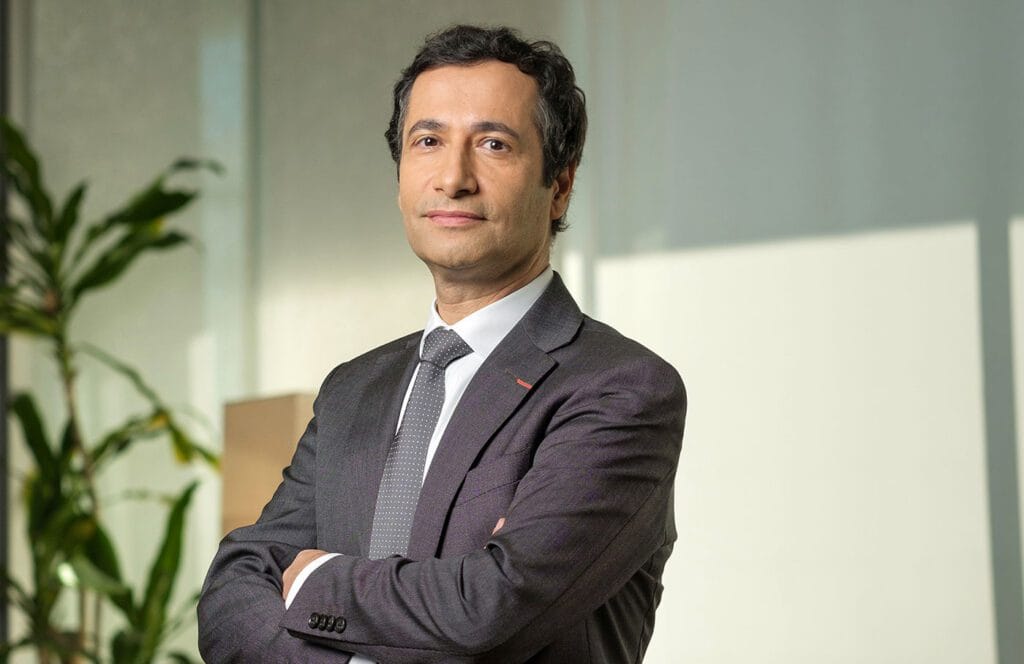Climate financing is becoming a priority to adapt to the impacts of climate change, said Mohamed Benchaâboun, the Director General of the Mohammed VI Fund for Investment, on Thursday in Rabat.
“Climate financing is becoming a necessity to combat the effects of climate change. It is therefore necessary to structure smart partnerships between the private and public sectors to not only mobilize significant financial resources but also to share risks, provide a secure contractual framework, and promote the transfer of knowledge and technologies,” Mr. Benchaâboun noted during Climate Day.
In this context, in response to climate challenges, Morocco has taken concrete measures, particularly through the creation of the Mohammed VI Fund for Investment, which plays a leading role in promoting investment and enhancing the capacities of the national economy, he added.
With an initial capital of 15 billion dirhams, this Fund’s mission is to facilitate investments, accelerate the realization of infrastructures, and strengthen the role of the private sector in their financing, he explained, noting that a significant portion of these financial resources is allocated to sustainable infrastructures and energy transition.
Furthermore, Mr. Benchaâboun emphasized the importance of modernizing the electrical network, accelerating decarbonization by promoting renewable energies, and supporting technological advancements in solar, wind, and transport electrification to achieve climate goals.
He continued that it is essential to encourage innovation through strong partnerships between governments and businesses, to produce more green electricity, and to develop human resources in these areas.
On the same occasion, the President of the General Confederation of Enterprises of Morocco (CGEM), Chakib Alj, highlighted the relevance of the energy transition, which constitutes a vector for social and economic transformation, as well as a tool to combat isolation and promote fair and inclusive development.
Mr. Alj also indicated that sustainable electrification offers Africa a unique opportunity to become a global leader in the energy transition and to build its energy infrastructures on entirely new and healthier foundations.
“Although ambitious, the challenge of electrifying our continent is entirely achievable,” he estimated, recalling the example of Morocco’s experience in providing energy access for all, where the rural electricity access rate has increased fivefold in 27 years thanks to the comprehensive rural electrification program.
Moreover, Mr. Alj reiterated CGEM’s commitment to ensuring the skill development of Moroccan operators and to developing sustainable and structured partnership relations with operators from brother African countries.
“These relationships are based on support, knowledge sharing, and strengthening local technical and managerial capacities,” he specified, adding that the Confederation is deploying a support program for the decarbonization of businesses, incorporating an important component related to these companies’ access to green energies, particularly those connected to medium voltage.
For his part, the CEO of the Moroccan Agency for Sustainable Energy (MASEN), Tarik Ameziane Moufaddal, emphasized the importance of this meeting, which brings together leaders of key institutions, both public and private, from Morocco and African countries, committed to sustainable development in a space of fraternal exchanges conducive to exploring solutions to the challenges of climate change and opportunities for collaboration.
Mr. Moufaddal also affirmed that renewable energies represent a realistic and perfectly adapted solution to address the challenges related to climate change, recalling the role of MASEN, which has been responsible since its creation in 2009 for leading the development of renewable energies in Morocco and carrying out its integrated projects for green electricity production, with the aim of contributing to the national objective by 2030 of an energy mix comprising at least 52% of installed capacities from renewable sources.
The 4th edition of Climate Day, held in the historic setting of Chellah in Rabat, was marked by the presence of more than 300 participants from the public and private sectors, as well as key actors from national and international organizations, accompanied by an African delegation representing the energy sector, to discuss pressing environmental issues and promote initiatives for a sustainable future.
During this event, Nexans symbolically launched the electrification project for the village “Shems’y,” a refuge for orphans of the Al Haouz earthquake.
This gathering was also marked by the awarding of prizes to the six winners of the Nexans Climate Challenge, a competition aimed at rewarding the most innovative projects in the field of environmental sustainability.


